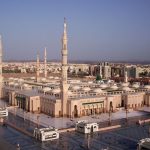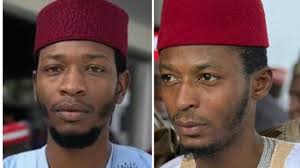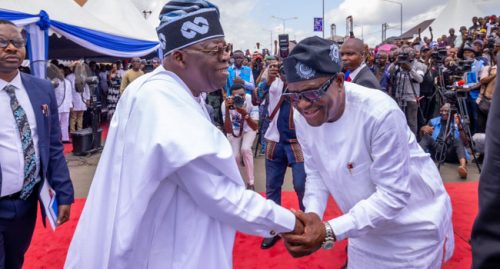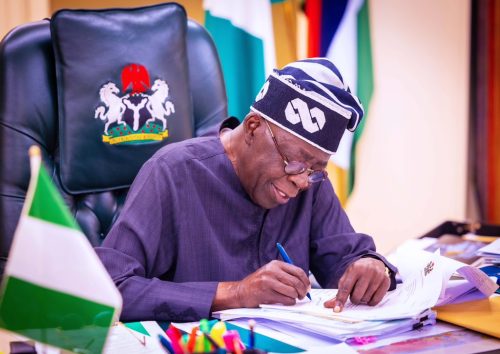COLUMNIST: Where is Kano going to?

By Ray Ekpu
Kano State is known as the Centre of Commerce. It is not for nothing that it was so designated.
In the 50s and 60s it was famous for both agriculture and commerce, the twin endeavours that gave Kano its essence.
In the days of yore the state had several industrial estates which included breweries, yes, breweries, vegetable oil processors and factories of various kinds.
There were also the groundnut mountains which came to be called groundnut pyramids.
It was also a hotbed of radicalism that came in the form of talakawaism spearheaded by Mallam Aminu Kano; Talakawaism was a frontal affront to feudalism and all progressive thinkers rallied round Aminu Kano’s People’s Redemption Party (PRP).
Aminu Kano contested for the office of President in the 1979 elections but did not win. Eventhough he did not earn the presidential diadem his progressive thoughts remain an enduring legacy to his name.
Even today that Aminu Kano is no longer around true progressives still think that the PRP is the party to belong to.
But because Nigerian politics is basically a come-and-chop affair, a party like the PRP that does not have a deep pocket does not seem exceedingly attractive to most Nigerian politicians.
Most Nigerian politicians only go into parties where they are guaranteed stomach infrastructure.
For them therefore the PRP is not the place to be. But in the days of Aminu Kano the PRP gave Kano a place of honour at the table even without having election trophies to display.
But Kano has gone through some mutation today despite our celebrating 21 years of constitutional democracy.
In this democracy an ancient practice famous in the days of military rule was enacted.
The Emir of Kano, Muhammadu Sanusi was deported, flesh and bones, this year, to an unknown village by a civilian governor in a democratic setting oblivious of all the rights of the deportee enshrined in the Nigerian Constitution.
Nigerians cried foul and the court listened. That is the only reason that Sanusi, the former Governor of the Central Bank of Nigeria, can walk about today, a free man.
In this same Kano under the leadership of Governor Ganduje, the government is sponsoring marriages for indigent couples instead of sending them to school or getting them to learn some skills so that they can be useful to themselves and the society.
How these “arrangee” marriages will bring progress to Kano and Nigeria is a mystery to me.
But a government feels happy to waste much needed funds in that manner without the youths or the nongovermental organisations carrying placards to the governor’s office if the House of Assembly would not stop him.
Under the government of Mr. Abdullahi Ganduje, a 74-year old trader, Bridget Aghahime in Kofar Wambai market in Kano State was hacked to death for asking a man not to perform ablution in front of her shop.
She was considered to be anti-Muslim. Five suspects were arraigned for homicide, then the charges were withdrawn without any explanation.
Case closed. Justice denied. The woman’s hapless husband has remained inconsolable. Now listen to this.
The Commander General of the Hisbah, the shariah police says that in the last seven years in 800 operations about 13 million bottles of beer have been destroyed in Kano State.
Beer consumption is forbidden to residents whether Muslims, Christians or Animists. It cannot even be conveyed through the State to somewhere else.
But the State does not mind collecting the money that comes to it as value added tax on beer.
Beer may be dirty but the money earned from its sale and consumption is not. Cruel logic! Kano is making serious efforts to stand out, for the wrong reasons, among Nigeria’s 36 states.
Now the uproar is about a musician who may be hanged soon if nothing is done to save his life.
The musician Mr Yahaya Sharif-Aminu has been sentenced to death by an upper sharia court in Kano State led by Justice Aliyu Kani.
The 22-year is said to have been found guilty of committing blasphemy in a song wherein he allegedly elevated an imam above Prophet Mohammed.
Before this sentencing angry protesters had already burnt down his family house. On that very day a 13-year old boy Umar Farouq, was sentenced to 10 years in prison for blaspheming Prophet Mohammed during an agreement with some friends.
So even a minor such as Usman cannot receive a warning and a simple slap on the wrist by the judge and told to go home and blaspheme no more.
All of these cases tend to challenge the powers, the durability and the supremacy of the 1999 Nigerian Constitution. Section 10 of the Constitution says that “The government of the federation or of a state shall not adopt any religion as State religion.”
But that portion of the Constitution seems to be observed more in the breach than in the observance by some of the muslimdominated states.
Since 1999 about a dozen of these states in northern Nigeria have foisted the sharia law on their citizens.
When Governor Yerima Ahmed of Zamfara State started to push for sharia President Olusegun Obasanjo described it as political sharia.
Even with the constitution of Nigeria in their right hands, many of them out of political expendiency started embarking on this journey of political sharia in violation of their oath of office.
By our legal arrangement any law that is in conflict with any portion of the Nigerian Constitution remains invalid, null and void.
Our constitution specifically guarantees freedom of association, expression, worship etc as enshrined also in international conventions to which Nigeria is a signatory.
Such rights are enshrined in the African Charter and People’s Rights and the Universal Declaration of Human Rights.
These rights ought to be enforced by the appropriate authorities in Nigeria but they are not because many Governors in Nigeria cannot even be called to order by their Houses of Assembly or their citizens or the human rights bodies including the National Human Rights Commission.
Wherever there is a clash between the Constitution and the Acts of Parliament enacted by any of the states, the constitution ought to prevail.
The bad example set by Kano State on several fronts is disturbing and if allowed to fester the country will descend into a state of anomie.
The reason that Nigerians battled against continued military rule was to get back their cherished freedom as enunciated in all international conventions to which Nigeria is a signatory.
READ ALSO: Firemen rescued 12 in Kano building collapse
If states such as Kano are allowed to gradually wipe away the cherished freedom of its citizens, unchecked it will be a matter of time before the seizure of people’s rights becomes a national past time that can spread rapidly to other states.
Secondly, in the post-covid 19 era all economies in the world particularly countries such as ours will need new and massive investments for survival.
Investors often look for places where there is security, freedom, good infrastructure and a generally favorable operating environment to ensure the safety of their lives, property and investments.
With all the serious security challenges that Nigeria is battling against in many states, we do not need to add some self-inflicted wounds in the shape of bad decisions by some of our state governments, their courts and parliaments.
The totality of these retrogressive steps in a modern world will be unpleasant for Nigeria which is already in a very bad shape in economic and political terms now.
We commend the human rights lawyers led by Mr Femi Falana, SAN, who are fighting to save the young musician from being sent to the gallows.
All men and women of goodwill must rise and fight against the attempt to drag this country back to the stone age by people that we elected to take us to a decent level of civilisation.










